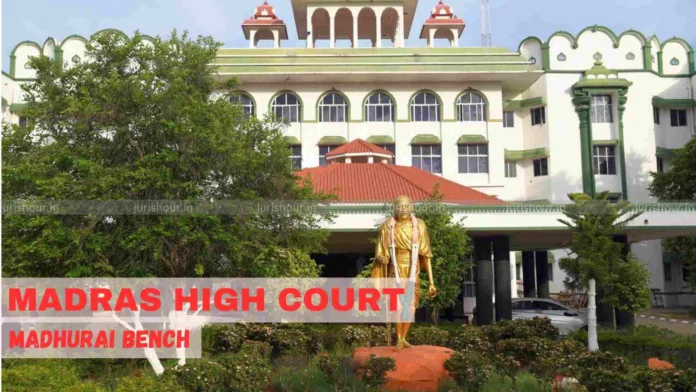The Madurai Bench of the Madras High Court has set aside a tax attachment order issued in 2016 by the Tamil Nadu Commercial Taxes Department against the assets of RLS Alloys Pvt Ltd, holding that the department’s claim stood extinguished under the Insolvency and Bankruptcy Code (IBC).
The bench of Justice C. Saravanan allowed a writ petition filed by M/s Avenue Realty, which had purchased the disputed property in an auction conducted by the liquidator of RLS Alloys under orders of the National Company Law Tribunal (NCLT).
RLS Alloys, a Tiruchirappalli-based company, was ordered to be liquidated by the NCLT in June 2019 after failing to resolve its insolvency. Its assets, including immovable property at Sethurapatti Road, were sold by the liquidator in October 2024. Avenue Realty emerged as the successful bidder, paying over ₹3.05 crore, and was issued a sale certificate in January 2025.
However, the property could not be registered in Avenue Realty’s name due to an encumbrance created by an attachment order dated February 3, 2016, issued by the Assistant Commissioner of the Srirangam GST Circle for arrears of ₹2.11 crore in VAT dues against RLS Alloys for the assessment years 2007–2015.
The tax department had filed a belated claim before the liquidator in August 2020, which was rejected. Its subsequent applications before the NCLT were dismissed — first in 2022 for default and later in February 2025 for delay of over 300 days in seeking restoration.
Avenue Realty, therefore, approached the High Court seeking to quash the 2016 attachment and direct the Sub-Registrar to remove the encumbrance.
The Court noted that under the IBC, once liquidation proceedings commence, all statutory dues must be claimed and settled through the prescribed “waterfall mechanism” under Section 53 of the Code. The Commercial Taxes Department, despite being treated as a “secured creditor” by virtue of its pre-existing charge, had failed to prosecute its claims diligently before the NCLT.
The court observed that allowing the attachment to subsist would amount to “unjust enrichment at the cost of other stakeholders” and defeat the overriding effect of the IBC under Section 238.
The Court also cited precedents, including Paschimanchal Vidyut Nigam Ltd. v. Raman Ispat Pvt Ltd (2023) and Su-Kam Power Systems Ltd. v. State of Himachal Pradesh (2025), reinforcing that statutory attachments must yield to the IBC process once liquidation is ordered.
Case Details
Case Title: M/s.Avenue Realty Versus Assistant Commissioner
Case No.: W.P.(MD) No.8260 of 2025 and W.M.P.(MD) No.6197 of 2025
Date: 14.08.2025
Counsel For Petitioner: T.Mohan, Senior Counsel
Counsel For Respondent: R.Suresh Kumar
Read More: Live | 56th GST Council Meeting: Next-Gen Reforms Take Centre Stage

